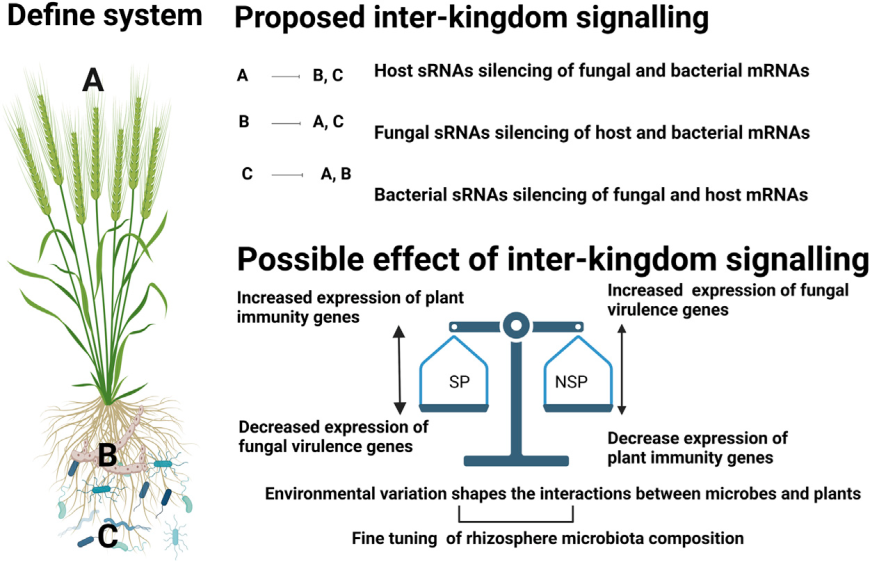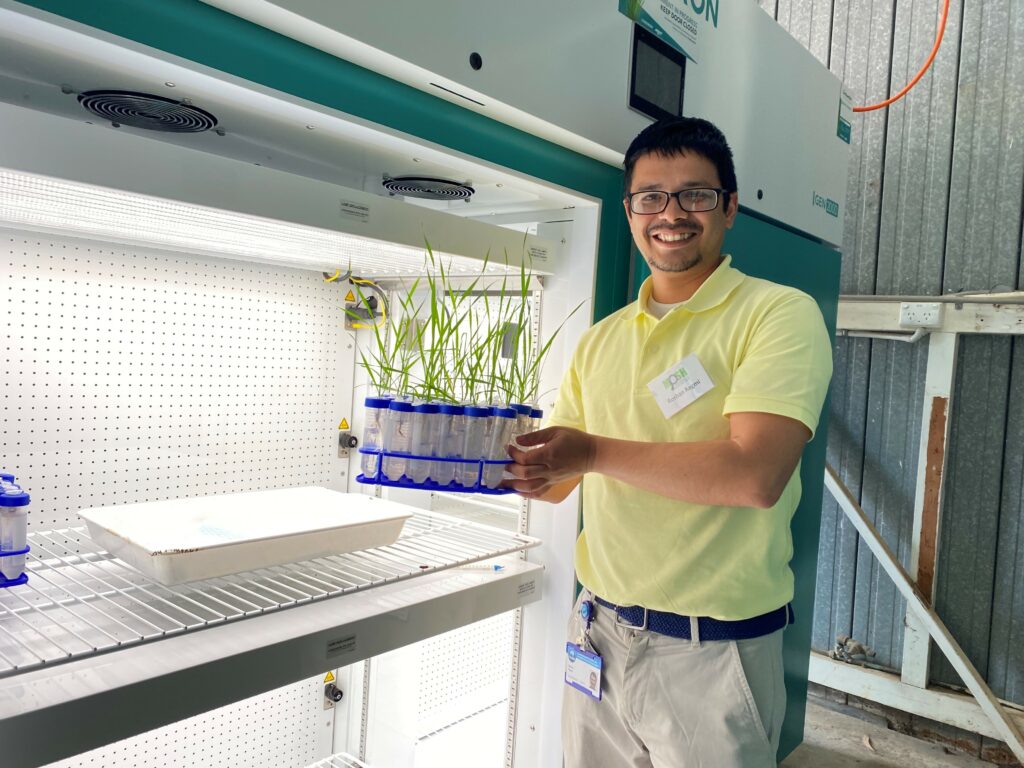Publication alert – Do small RNAs unlock the below ground microbiome-plant mystery?

Wheat Rhizosphere
This perspective paper explores the below-ground world of microbiomes (bacteria and fungi) and plants, and how they interact and communicate with each other through inter-kingdom signalling. How these interactions play out can determine the plant’s health.
Recent research suggests that small RNA molecules from plants and microbes that can modulate / induce gene expression in plants and microbes thereby potentially influencing the responses in plant health and microbial growth. For example, microbial population can secrete sRNA effectors into or near the host plant’s root cells to suppress its immunity and increasing the severity of the disease. Alternatively, plant can modulate the microbial genes’ expression and mediate their functions. This information helps to understand how microbes assemble and function in the plant rhizosphere and what regulates plant-microbe interactions.
The authors discuss this inter-kingdom signalling/communications in light of disease suppressive and non-suppressive soil, and provide insight on the mystery of why plants might be healthy in suppressive soil and diseased in non-suppressive. The possible effect of the inter-kingdom signalling happens in such a way that favours plants to enhance their immune response in suppressive soil and vice-versa in non-suppressive soil. Currently, plant health microbiomes team are conducting detailed functional microbiome studies to unravel this phenomenon.
This research is important because the knowledge gained on driving factors for microbiome assembly can contribute to future management solutions of diseases in commercial crops such as wheat and barley (more information on the devasting impacts of soil-borne disease on cereal crops is available here). Potential management strategies would focus on modified farming practices to encourage the development of suppressive soils by modification of the soil microbiome, modification of host genetics/immunity to support disease suppression, and the development of ‘purpose-built’ microbiomes resulting in stable disease suppression.
Read the full review article here:
Do small RNAs unlock the below ground microbiome-plant interaction mystery?

Schematic for possible ways of sRNA mediated gene regulation in wheat rhizoctonia-microbiome interactions and possible effect of such interactions in the context of disease suppressive soils.
Publication authors:
Dr Roshan Regmi – Postdoctoral Fellow, Functional Soil Biology
Dr Gupta Vadakattu – Senior Principal Research Scientist, Functional Soil Biology
Dr Jonathan Anderson – Principal Research Scientist
Ryan Penton – Collaborator from the Center for Fundamental and Applied Microbiomics, Biodesign Institute, Arizona State University, Tempe, Arizona, USA.

Roshan Regmi with wheat crop.
See how MOSH researchers are understanding the plant microbiome to enhance wheat crop growth and health, and help meet the increasing demand on this important food crop:
